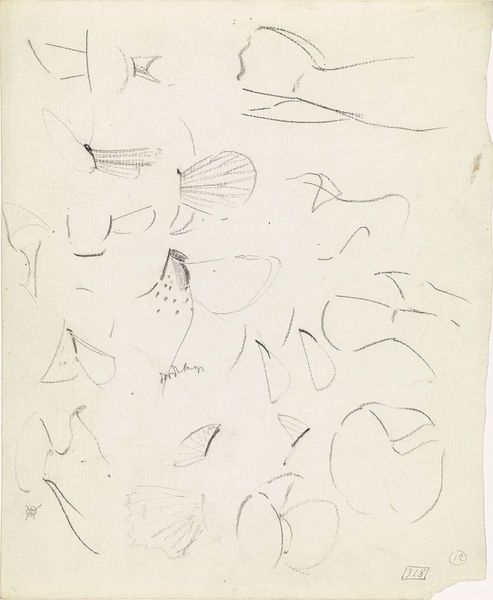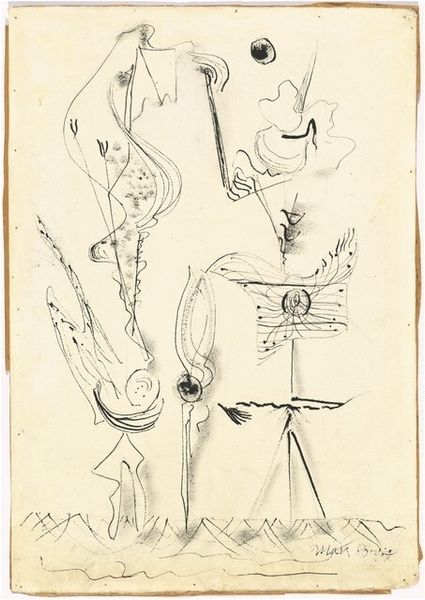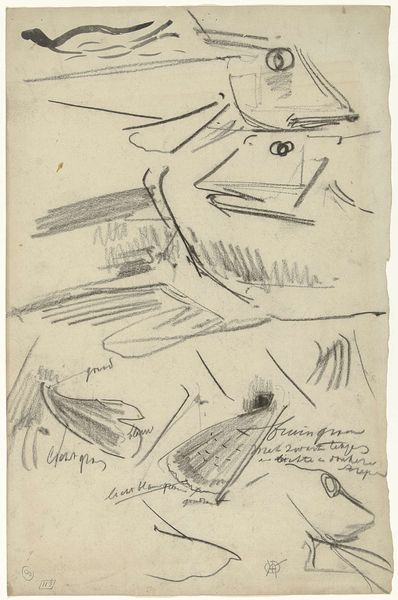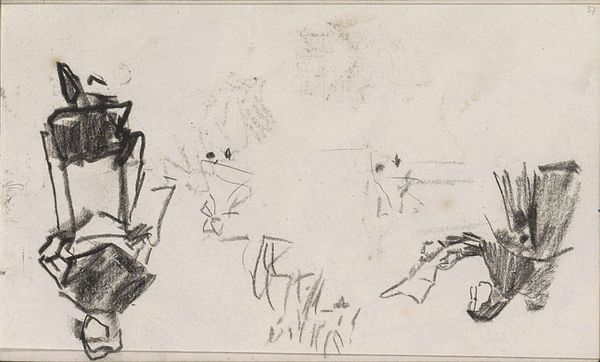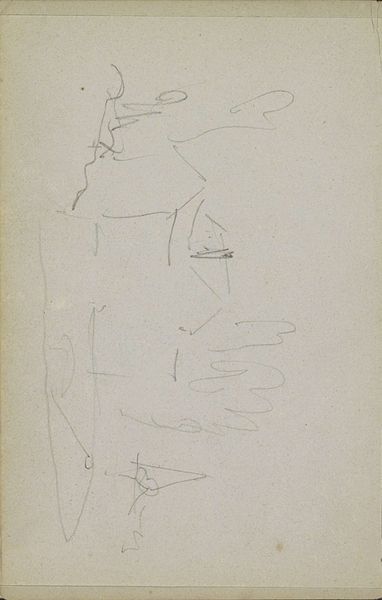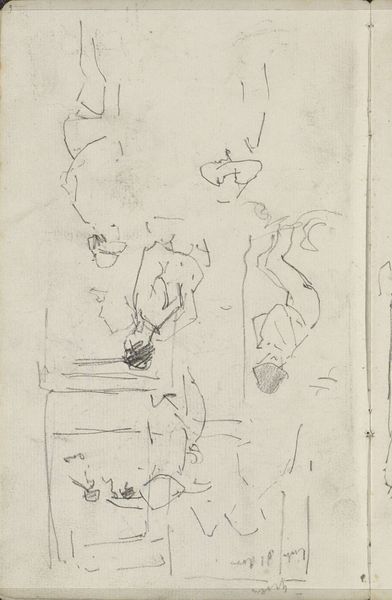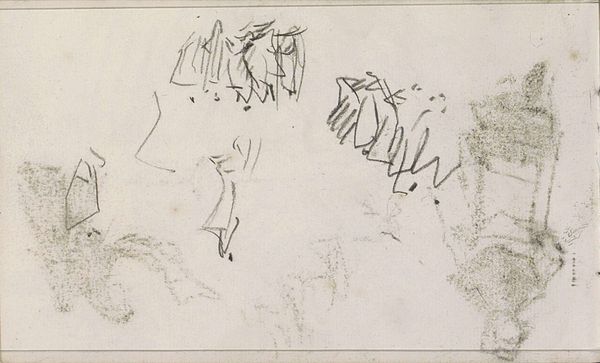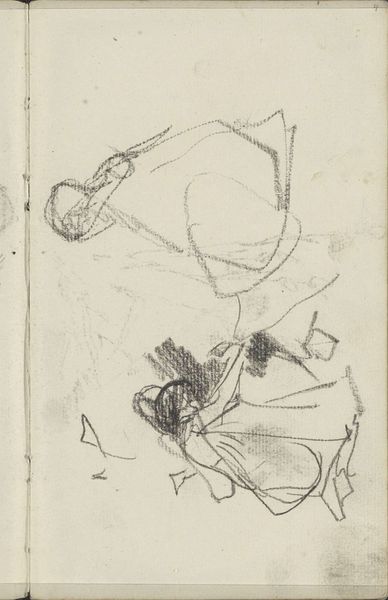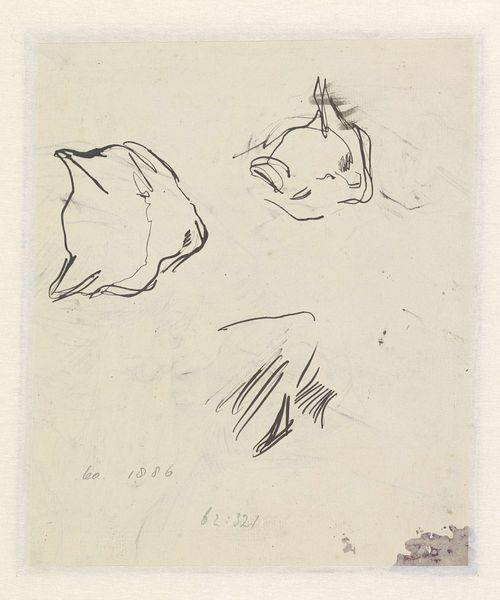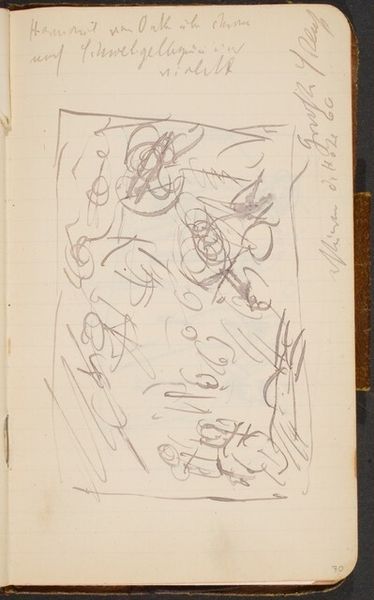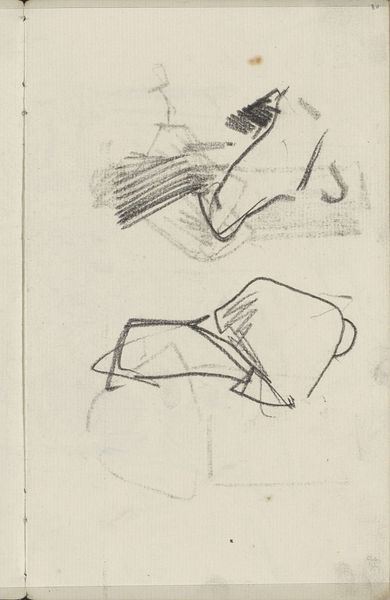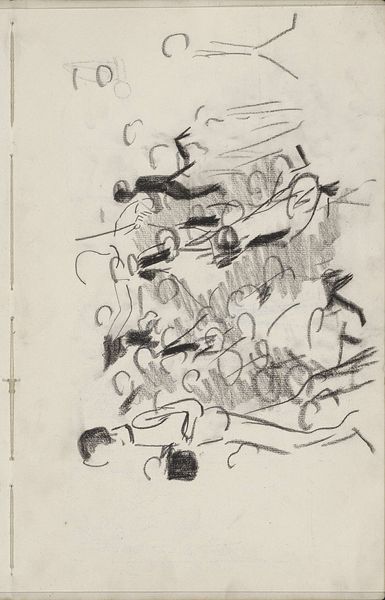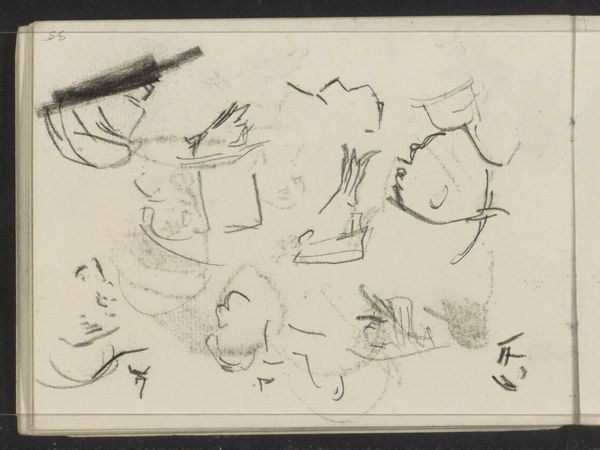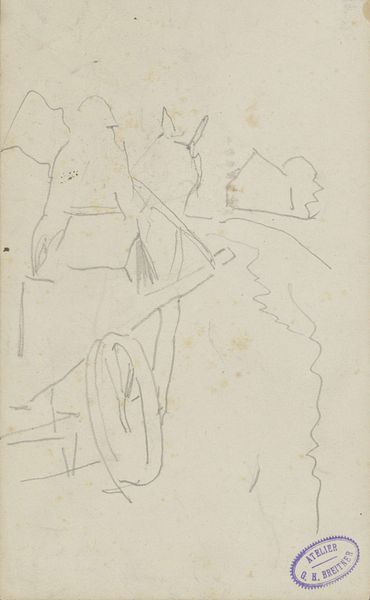
drawing, paper, pencil
#
drawing
#
dutch-golden-age
#
pen sketch
#
paper
#
pencil
Dimensions: height 280 mm, width 213 mm
Copyright: Rijks Museum: Open Domain
These “Detailstudies van vissen” were quickly captured by Gerrit Willem Dijsselhof, likely in the late 19th or early 20th century, using graphite on paper. Dijsselhof's choice of graphite lends itself to a spontaneous, immediate quality. You can almost see his hand moving across the page. The varying pressures create a range of tonal values, from the delicate outlines of the fins to the more emphatic shading of the fish's head. Notice the textural contrast between the smooth paper and the gritty graphite. The translucency and fragility of paper further highlight the ephemeral nature of the sketch. The swiftness and economy of line suggest that these studies were preparatory exercises, perhaps for a larger, more elaborate composition. Dijsselhof’s engagement with the natural world might be linked to the growing interest in science and naturalism during this period. But the work also raises questions about the role of the artist as an observer and interpreter of nature. Is he merely documenting, or is he also imbuing these studies with his own artistic vision?
Comments
No comments
Be the first to comment and join the conversation on the ultimate creative platform.
